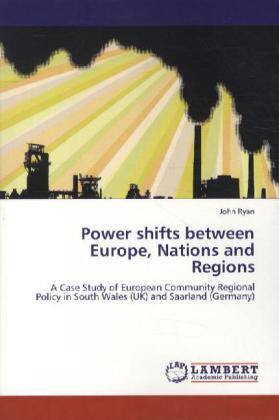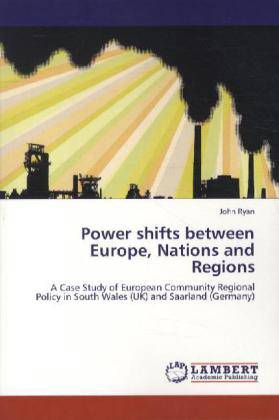
- Afhalen na 1 uur in een winkel met voorraad
- Gratis thuislevering in België vanaf € 30
- Ruim aanbod met 7 miljoen producten
- Afhalen na 1 uur in een winkel met voorraad
- Gratis thuislevering in België vanaf € 30
- Ruim aanbod met 7 miljoen producten
Zoeken
Power shifts between Europe, Nations and Regions
A Case Study of European Community Regional Policy in South Wales (UK) and Saarland (Germany)
John Ryan
Paperback | Engels
€ 79,45
+ 158 punten
Omschrijving
The book focuses on the approaches of the United Kingdom and German governments who have rather different stances towards regional economic policy. In this context, the administrative differences in implementing the Community Support Frameworks (CSFs) are also important. It is particularly interesting to compare the German (federal) vs. the British (unitary) systems of government which provide two different approaches in implementing regional policy. The successes and failures of the CSFs in resolving regional problems in Saarland and Industrial South Wales will also be addressed. The reform of the Structural Funds has had three consequences for power shifts between the European Community, the nation state and the regions. Firstly, it has caused more power to be directed away from the national level towards the European Community level. Secondly, it has increased European Community involvement in national and regional affairs, and the regional level has acquired more power in this process. Finally, centralisation of jurisdiction by means of more extensive and detailed regional policy packages has led to increasing fiscal dependence of regions on European Community funding.
Specificaties
Betrokkenen
- Auteur(s):
- Uitgeverij:
Inhoud
- Aantal bladzijden:
- 124
- Taal:
- Engels
Eigenschappen
- Productcode (EAN):
- 9783845470276
- Verschijningsdatum:
- 27/09/2011
- Uitvoering:
- Paperback
- Afmetingen:
- 152 mm x 229 mm
- Gewicht:
- 191 g

Alleen bij Standaard Boekhandel
+ 158 punten op je klantenkaart van Standaard Boekhandel
Beoordelingen
We publiceren alleen reviews die voldoen aan de voorwaarden voor reviews. Bekijk onze voorwaarden voor reviews.







